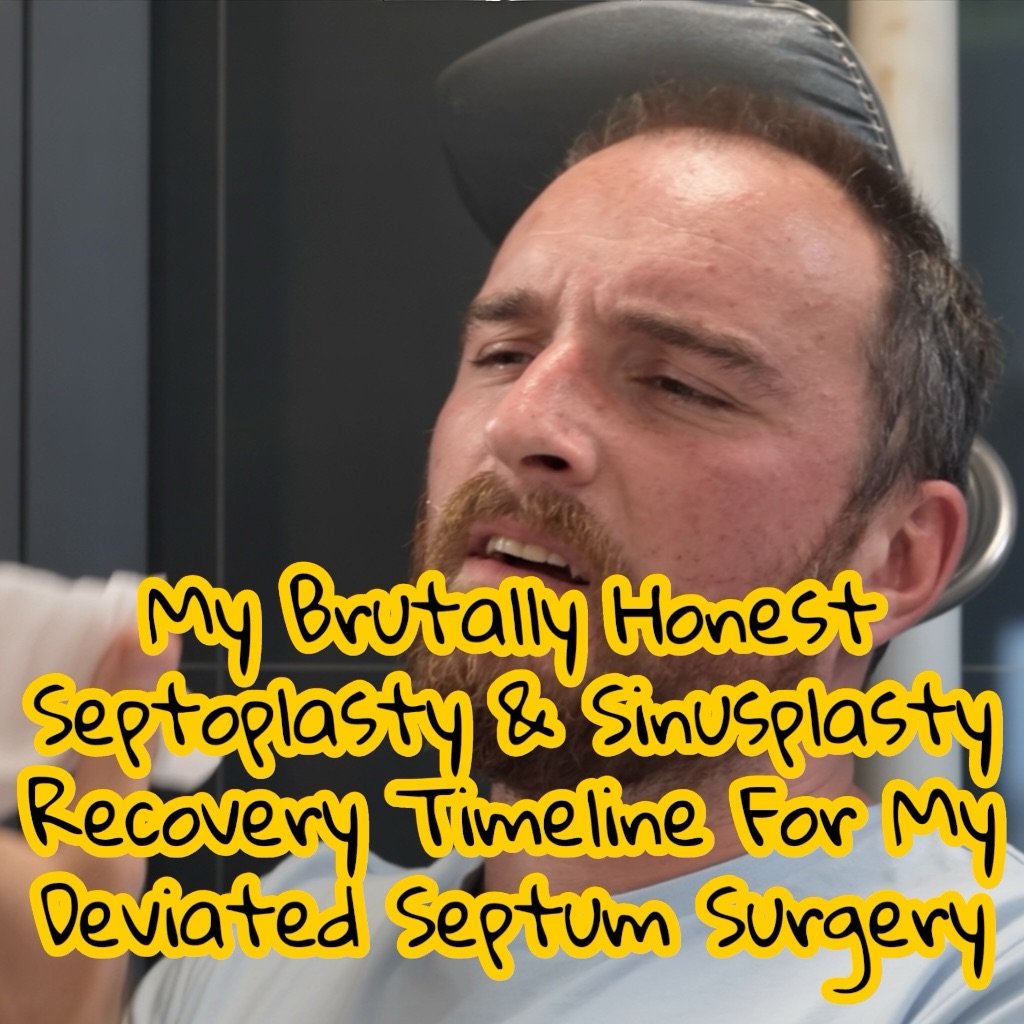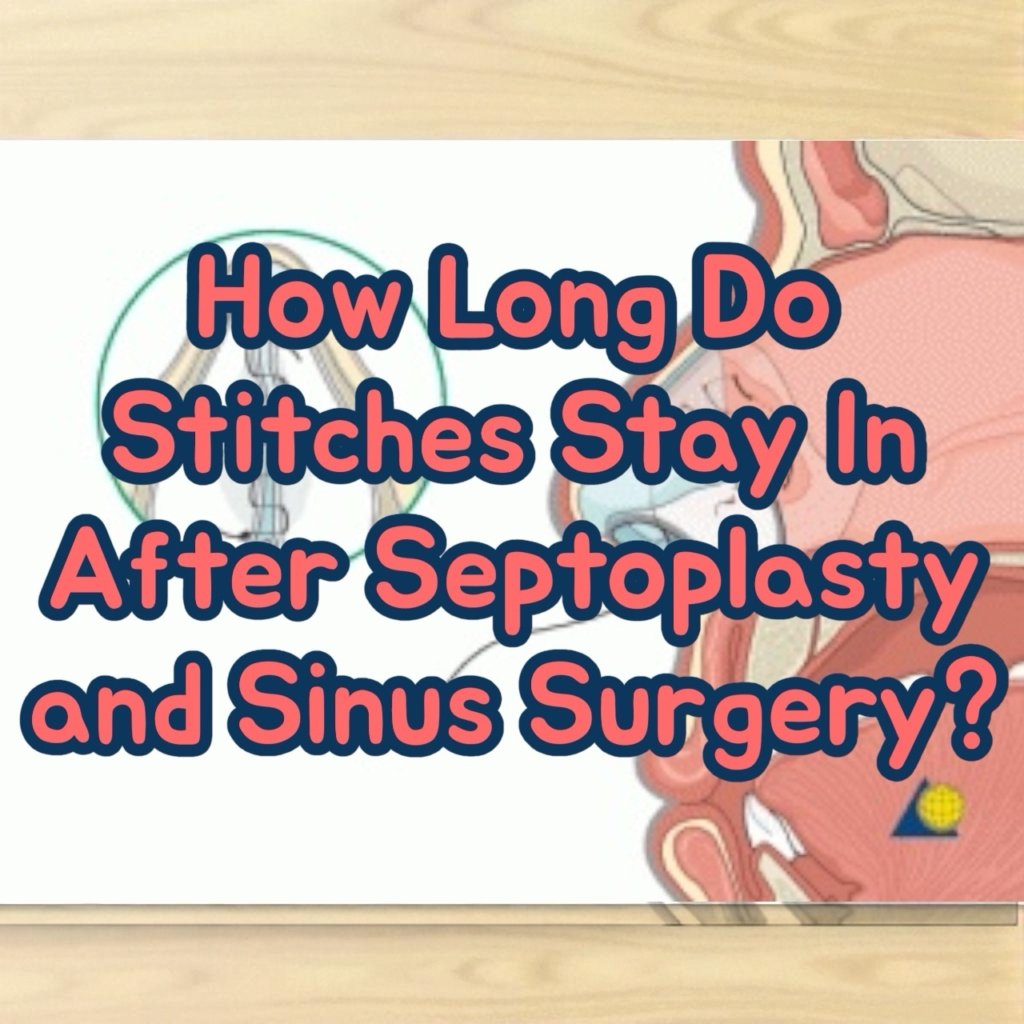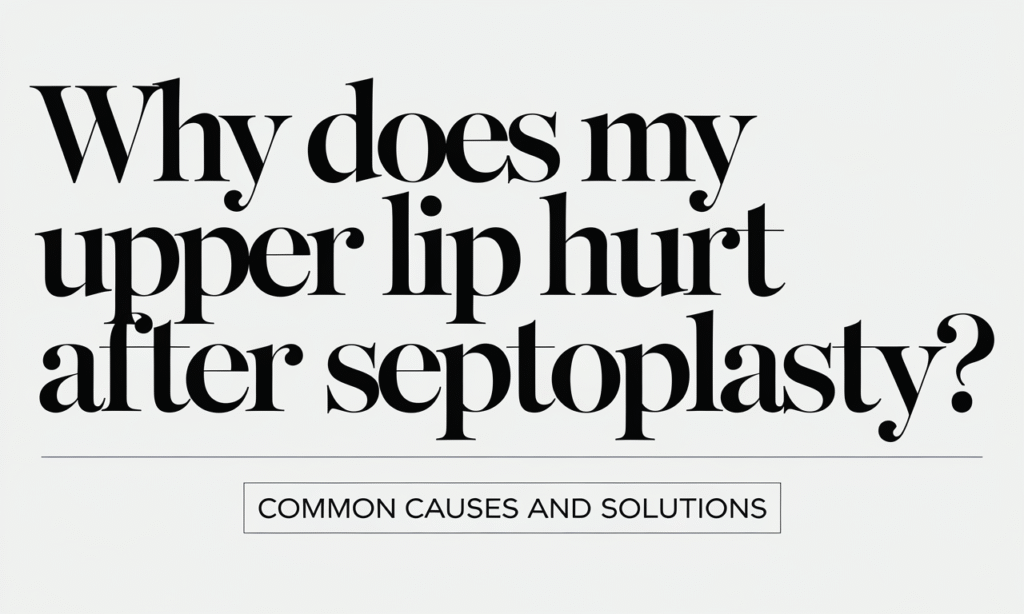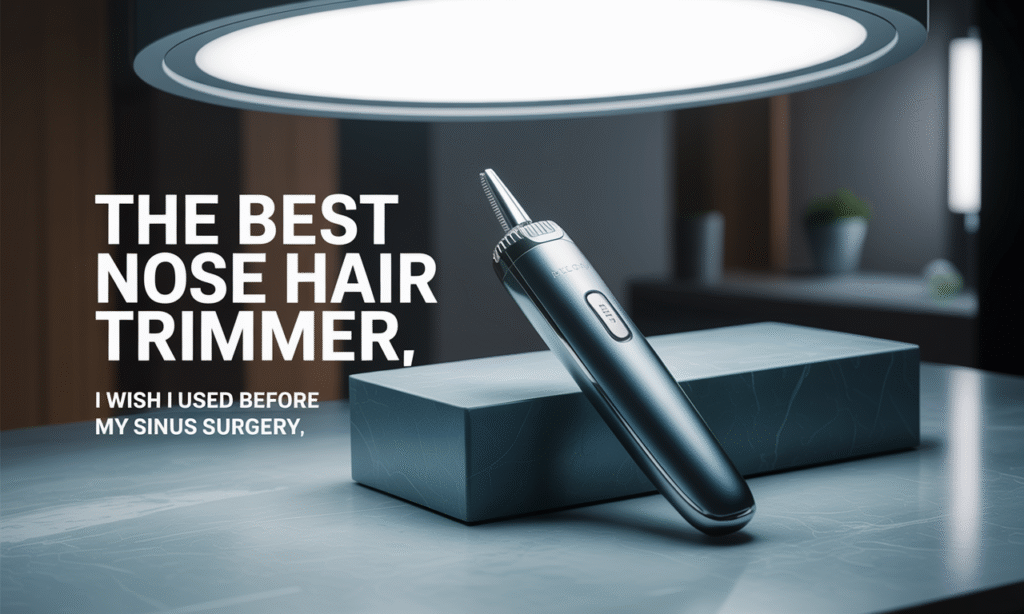
Why You Should Trim Nose Hair Before Septoplasty Surgery
If you’re getting ready for septoplasty or sinus surgery, let me tell you something I wish someone had told me: trim your nose hair first. Sounds small, right? But not doing it turned my recovery into something way more painful than it needed to be.
I actually had a great nose hair trimmer like this one at home the whole time, but I didn’t think to use it before my surgery. And that was a huge mistake. After surgery, all those dry blood clots, crusty scabs, and thick mucus got tangled in my nose hairs like thorns in a bush. It made cleaning miserable and the splint removal far more painful than it had to be.
The Post-Surgery Scab Problem No One Warns You About
Imagine having chunks of dried blood stuck in your nose and every time you breathe, sneeze, or try to clean, it feels like ripping Velcro off your skin. That was me—because I never trimmed my nose hair before surgery.
The worst part? Those crusts were glued to my untrimmed nose hairs, making every attempt to flush or wipe unbearably painful. If I could go back, I’d absolutely use a professional waterproof nose hair trimmer before the operation to avoid all that tugging and discomfort.
This is one of those things you only learn the hard way unless someone warns you first.
If you’re dealing with crusts, scabs, or soreness already, you might also want to check out my honest post about why my upper lip hurt after septoplasty. It’s all connected, and it caught me off guard too.
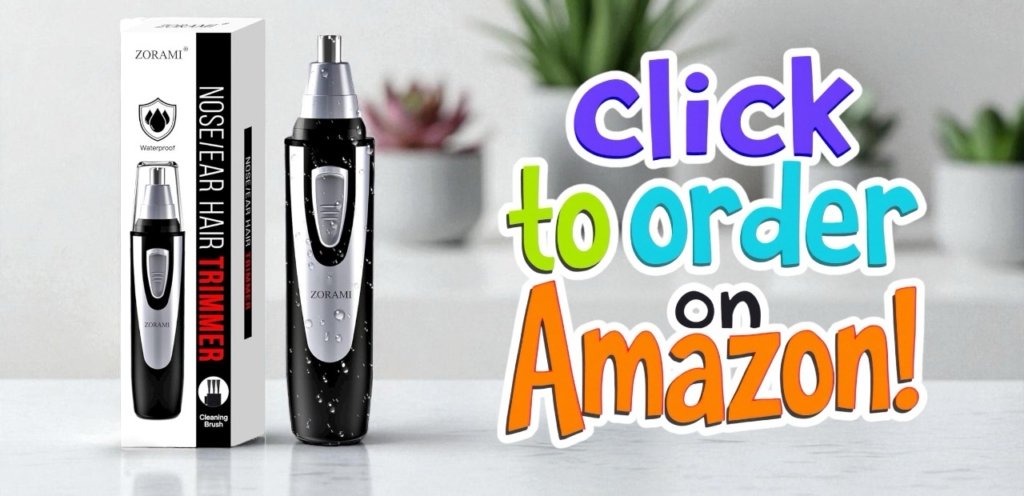
Why ENT Surgeons Should Add Nose Hair Trimming to the Pre-Op Checklist
My ENT gave me a checklist before surgery: don’t eat after midnight, arrange a ride, take your meds as directed, and so on. But you know what wasn’t on it? Trim your nose hair.
And I think it should be.
It’s such a simple step, but the payoff during recovery is massive. By cleaning up the area with a gentle and precise trimmer like this one, you’re reducing the chance of scabs getting caught, easing the cleaning process, and making your whole post-op experience more comfortable.
This isn’t about looking good. It’s about healing better and faster.
Will the Surgeon Trim Your Nose Hair for You?
You’d think they might, right? They’re going inside your nose after all. But nope. At least in my case, they didn’t even mention it. Maybe some do, but don’t count on it.
I’ve now told several people getting septoplasty: grab a painless, waterproof nose hair trimmer like this one
→ Ear and Nose Hair Trimmer Clipper – battery-powered, waterproof, dual-blade
It’s the kind of tool you’ll use again and again, not just before surgery.
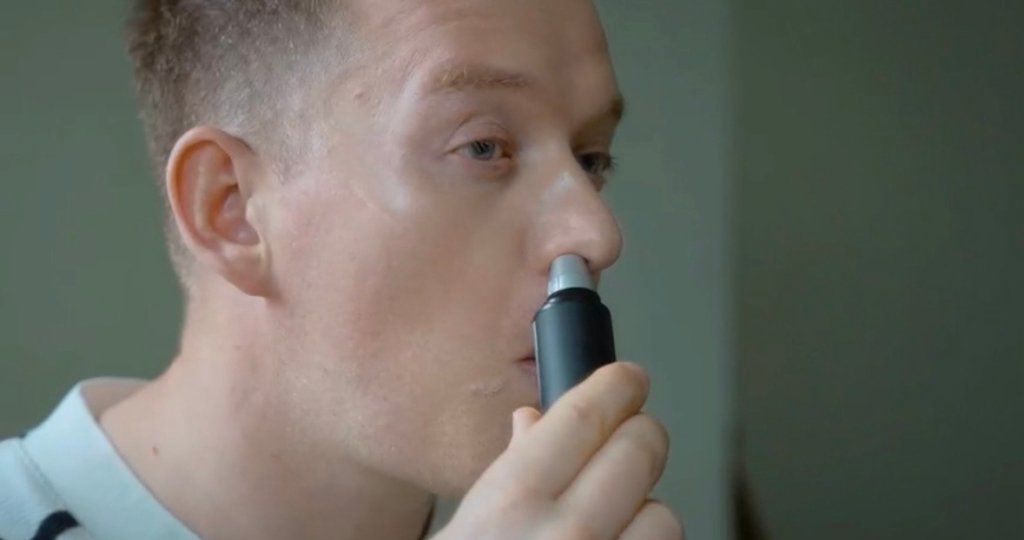
Crusting and Boogers Get Worse With Longer Nose Hair
One of the grossest surprises after surgery? The huge, dry boogers. They weren’t the kind you can just blow out. These were solid chunks, stuck deep in the nasal cavity, and worse — tangled in my long, untrimmed nose hairs.
Every time I tried to flush with saline or gently wipe inside with a tissue, I’d hit resistance — like pulling on a rooted weed. It was painful, sometimes even bloody, and just made me frustrated. I kept thinking, Why didn’t anyone tell me to just trim my nose hair first?
Now that I’ve been through it, I’m telling you: before you ever head in for surgery, grab a good waterproof nose hair trimmer and clean things up. I don’t care if you’ve never used one — it’s painless and takes five minutes. It will save you weeks of irritation.
Nose Hair Trimming Helps Nasal Rinses Work Better
If you’re already in recovery mode, you’ve probably been told to use saline nasal rinses. They’re a must. But here’s the thing — they don’t work as well when nose hair is in the way, especially if those hairs are matted with crusty blood and gunk.
Once I finally got things trimmed up during recovery, those rinses started working better. The water had a clear path, less resistance, and I wasn’t flinching every time I squirted the bottle. I’m convinced if I had used a smart, easy-to-clean nose hair trimmer before surgery, my rinses would have been way more effective from day one.
And if you’re still dealing with weird lingering discomfort, check out my real breakdown of the worst sinus pressure I felt after surgery. That article has helped a lot of readers understand what’s normal and what’s not.
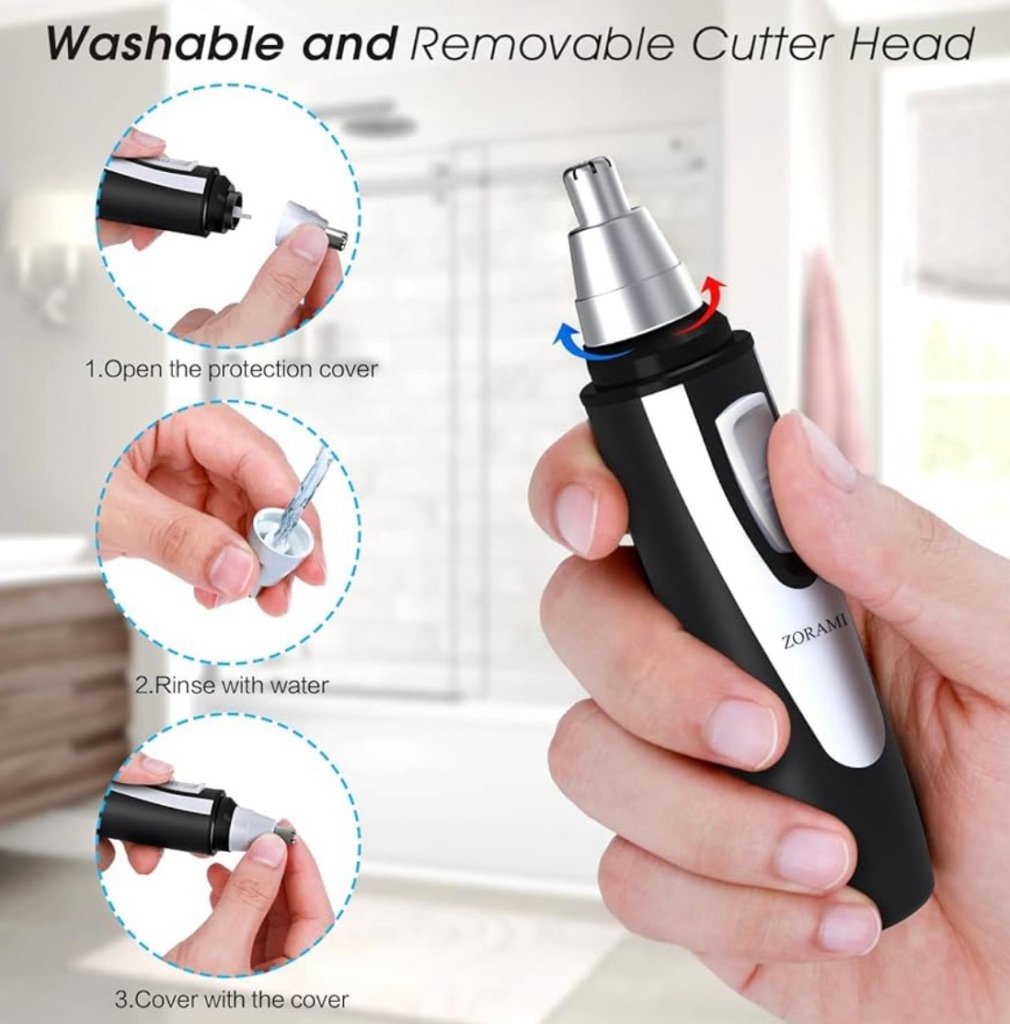
You’ll Be Too Sore to Trim After Surgery — Do It Before
Let me be clear: you won’t want anything near your nose for days after surgery. The last thing you’ll want to do is insert a trimmer or try to clip anything manually. I was scared to even touch my nose — even breathing through it was painful.
That’s why doing it ahead of time matters. A quick once-over with a gentle, dual-blade trimmer before surgery can prevent a whole mess of problems.
Trust me, you’ll thank yourself later.
This Nose Hair Trimmer Is The One I Wish I Had Used
If you’re wondering what kind of trimmer is best, I’ve got one that ticks all the boxes. The Ear and Nose Hair Trimmer Clipper is:
- Painless and gentle
- Waterproof, so you can clean it easily
- Battery-powered, no cords to mess with
- Made for both men and women
- Compact and easy to store
You can use it on your ears, brows, and other facial areas too — but for septoplasty prep, this is exactly what I would recommend. No pulling, no irritation, just a clean trim.
Why No One Tells You to Trim Your Nose Hair — But They Should
The crazy part is, not a single doctor, nurse, or surgical staff member told me to trim my nose hair before my septoplasty. I got a pre-op checklist with the usual “no eating after midnight” stuff… but nothing about nose prep. And yet, the dry blood, mucus, and scabbing all clumped around my nose hair made those first few days miserable.
It’s not their fault — I just think it’s something they forget to mention. That’s why I’m adding it to the list of things I wish I knew before surgery, along with using a humidifier for recovery. (If you’re prepping for surgery, check out my comparison of the best humidifiers for septoplasty recovery — they made a huge difference for me.)
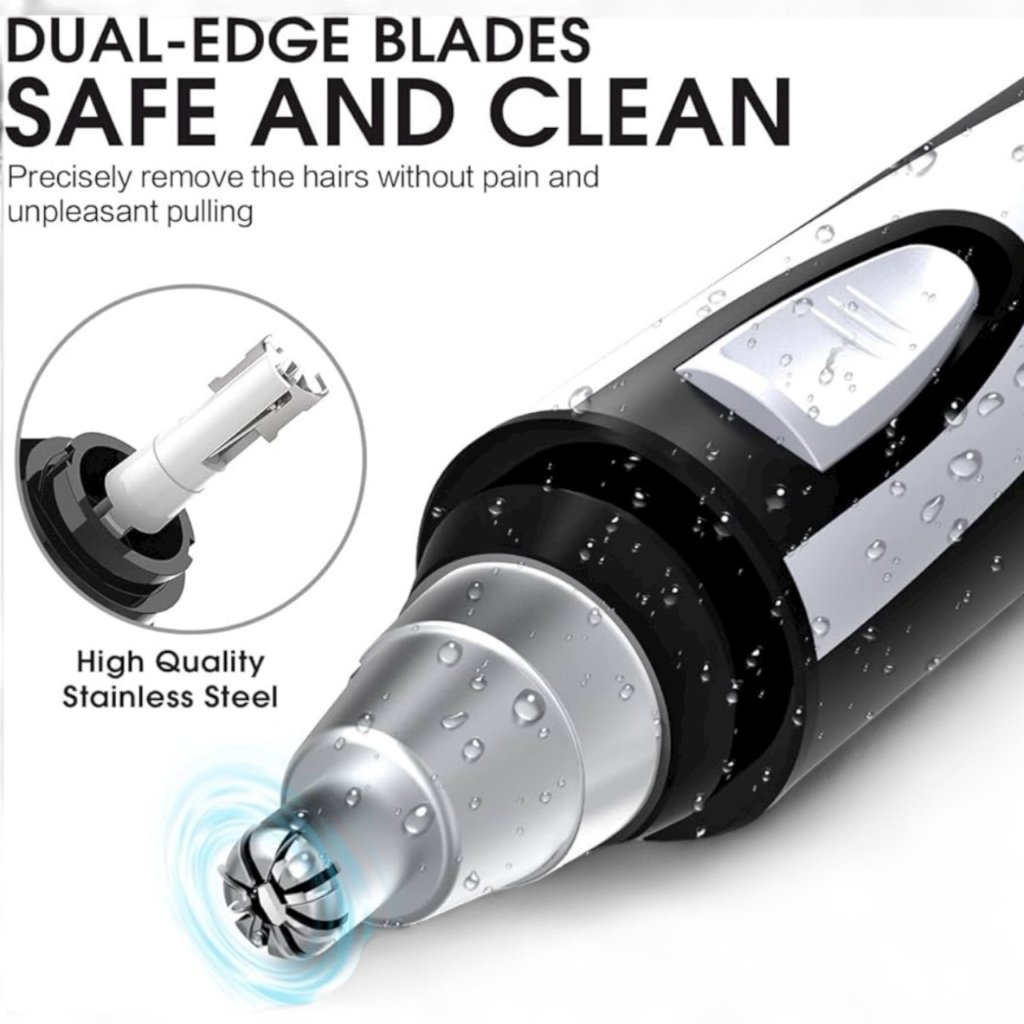
What to Expect If You Don’t Trim
Look, even if you skip trimming, you’ll survive — but it’ll be rougher. Here’s what I experienced when I didn’t:
- Every rinse felt like pulling Velcro
- Dry boogers got trapped in long hairs and made me paranoid about infection
- I had more nose irritation than needed
- I ended up trimming during recovery (very carefully), and it helped instantly
That’s why I keep coming back to the Ear and Nose Hair Trimmer Clipper. I now use it regularly, but I wish I’d used it right before surgery.
It’s Not Just About Looks — It’s About Comfort and Healing
People think nose hair trimming is cosmetic — but in this case, it’s not about looks at all. It’s 100% about comfort, airflow, and healing. When your nose is already under trauma from surgery, the less obstruction and friction you have in there, the better.
Whether you’re heading in for a septoplasty, turbinate reduction, or sinus cleaning, you’ll be glad you cleaned house first. No shame, no embarrassment — just smart planning.

Quick Recap and Final Tip
If you’re like me, prepping for sinus surgery can feel overwhelming. But this one small thing can make a huge difference. Trim your nose hair ahead of time. It’ll help your rinses work better, reduce irritation, and keep your recovery smoother.
The painless nose hair trimmer I recommend is super affordable and takes seconds to use. It’s waterproof, easy to clean, and doesn’t tug or pull — which is a big deal when your nose is healing.
Also, if you’re still on your recovery journey, check out why I wrote about the weird upper lip pain I had after surgery. It’s all part of the stuff people don’t talk about, but they should.

As an Amazon Associate we earn from qualifying purchases through some links in our articles.
